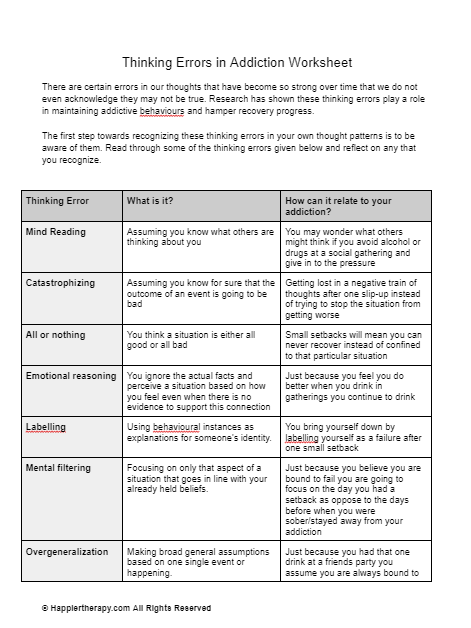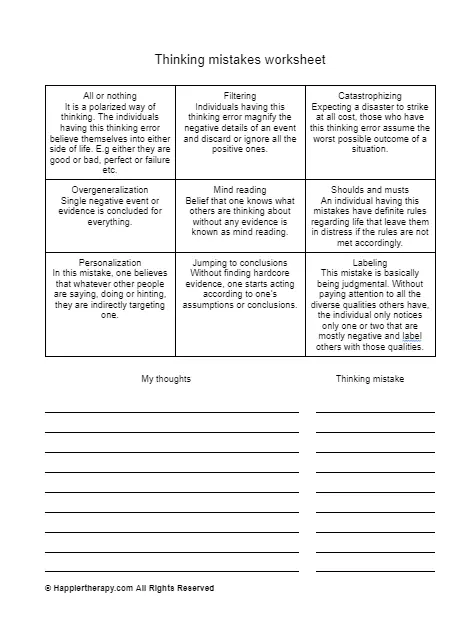Perfectionism therapy worksheet
Download Worksheet
What is the theory behind this Perfectionism therapy worksheet?
This worksheet is based on cognitive distortions that are routinely identified in Cognitive Behavioral Therapy. Cognitive distortions are also known as errors in thinking.
Many cognitive distortions are related to perfectionism. It’s all too simple to slip into the perfectionist trap in a society that is preoccupied with image and accomplishment. People who strive for excellence, are concerned about their family, and put a lot of effort into their careers tend to exhibit perfectionism.
How will the worksheet help?
Those who strive for perfection often have rigid, fixed ideas about what constitutes success and failure, which is reflected in their thought process.
This worksheet will help your clients identify their cognitive distortions which will help them battle their Perfectionism.
How to use the worksheet?
You will find a list of Cognitive Distortions and their examples with pictorial representation on the next page. Read them with your client and help them see the cognitive distortions they are using in their life.
This will be an important step in modification of negative thought patterns.
You can download this worksheet here.

 By
By



